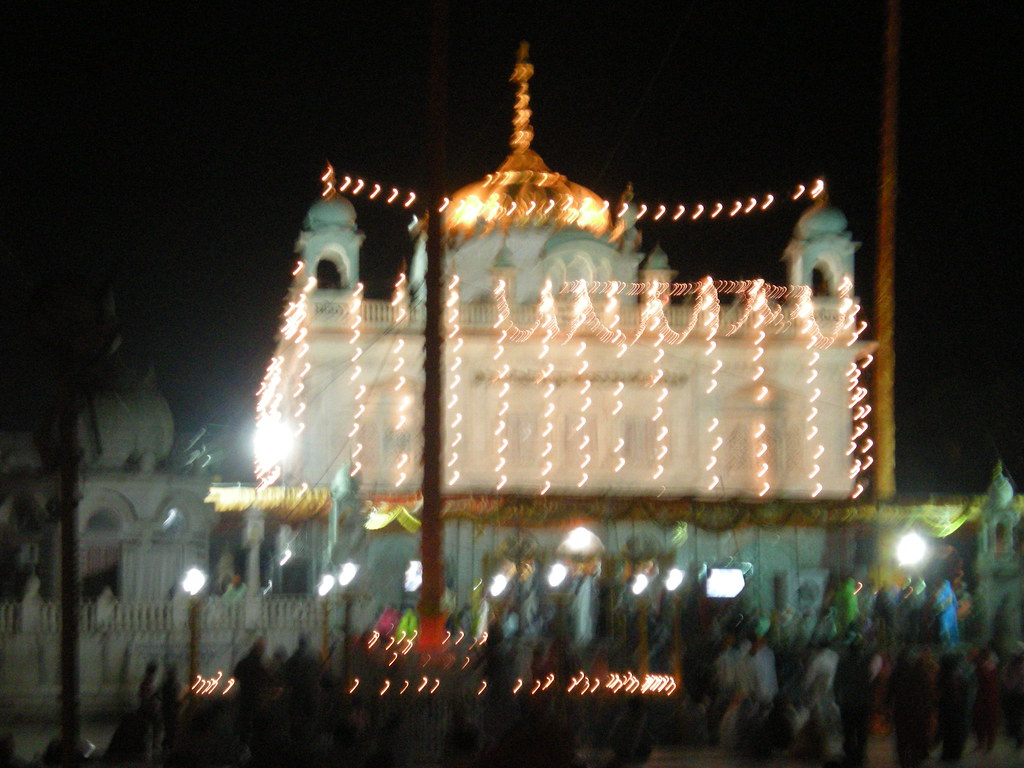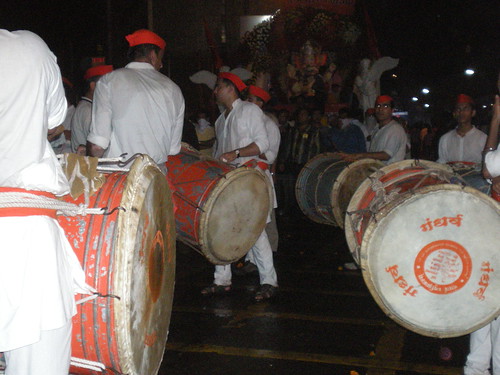Today, September 17th marks the death anniversary according to Hindu calendar of Nanasaheb Peshwe, the third Peshwa in Maratha empire. Word Peshwe simply means the prime minister or head of minister council. Balaji Vishwanath was the first Peshwa was first Peshwa appointed by Shahu Maharaj, the grandson of Chhatrpati Shivaji and son of Chhatrapati Sambhaji. Balaji was succeeded by Bajirao I. Bajirao's son was Nanasaheb Peshwa. Most of the magnificence of today's Pune is either created by Peshwas or stemmed from the Peshwa era creations.
Nanasaheb Peshwa is not remembered for the valour and romanticism like Bajirao I. Nor is he known for the political acumen like Madhavrao Peshwa. But he was instrumental in giving Pune some of the most memorable edifices and systmes. Prominent among them is Parvati temple which is a hallmark of Pune's cultural activism and aestheticism. Parvati hill situated near Swargate today is dotted, or rather dominated by the slums, but at the time of its creation, it was one of the architectural beauties of the Deccan.
Born on December 16, 1721, Nanasaheb was named Balaji Bajirao. He became Peshwa on June 25, 1740 and died on June 23, 1761. In his last days, he was much disturbed by the great defeat of Marathas at the battle of Panipat. He lost his brother Sadashiv and niece Vishwas at the battle. To add insult to injury, there was an impersonator claiming to be Sadashivrao Peshwa who came some time later after the battle. The case took many days and caused much upheaval in the ruling family as well as elite class in then Pune. Later, the impersonator was found to be a Brahmin from Kanauj and was killed. But till then, he was placed at Parvati.
Barring Raghunath Peshwa, whose ambitious politics caused much disorder during Peshwa rule, all Peshwas lived very short. On an average, they were only 40 years of age. Nanasaheb was no exception. He was 39 when he died of Tuberculosis. He did not take much part in the battles but more than that, he is known for his administrative skills. His predecessors had laid a solid foundation what with even Mogul rulers at Delhi consenting to their claims without much fuss. Nanasaheb built an artful and systematic rule on that foundation. It was during his rule that first water system in Pune was laid down. He managed to bring water from Katraj lake to Pune about 250 years ago. During his reign, he either created or rehabilitated Raviwar Peth, Budhwar Peth, Shukrwar Peth, Vetal (Guruwar Peth), Nagesh Peth, Ganesh Peth and Ganj Peth which even today are burstling with activities.

Most of Nanasaheb's life was spent at Parvati. His existence was so attached to the place that he breathed his last at the site. Later, it was a place associated with many incidents of importance. After British rule firmly established itself on the land, the religious connotation of the place gave way to cultural one. Many citizens from old parts of the city were obsessive visitors to the place. Marathi literature is full of references of how old and young people alike had daily routine of climbing up and down the hill. Even as the city was birthplace of many movements and citadel of activists of all sort, the meeting spot for all of them was mainly Parvati. Converging at eateries and hotels is a very recent phenomenon for Pune.
Paravati temple was established in year 1749 by Nanasaheb Peshwa. He started a trust to manage the temple. Opinions differ on the exact date of establishment of the temple-some say it is April 11 and some say it is April 7. But the foundation day of the temple is celebrated according to Hindu calendar. Nanasaheb was a devotee of Mahadev so he made an idol of Mahadev and Parvati with Ganesh sitting on their laps from gold! Along with Mahdev, four other temples dedicated to Goddess Parvatai, Ganesh, Vishnu and Sun were created here. The idol of Mahadev was made from 6337 tolas, Parvati 1245 tolas and Ganesh 686 tolas! Even five epitomes of the temples were also made from gold which weighed 1079 tolas. These idols were put in tight security cover and they were taken to Sinhgad many times during the enemy attack on Pune. On July 15, 1932 these idols were stolen. The perpetrators were never caught neither the idols were recovered. The present idols in the temple are made from silver and gold plated.
Nanasheb built a wada as his residence just beside the temple. Now his memorial is built in the room where he breathed his last.
 Most bizarre incident of rebellion occurred in Jamkhed in Ahmednagar district. Sharad Lokhande, sitting MLA from BJP was again given a ticket from the same constituency. But he rejected the ticket and made headed towards Maharashtra Navnirman Sena. The two time MLA is a MNS candidate now from Kurla. In a new low of part politics, chief minister Ashok Chavan's cavalcade faced footwear just yesterday. Chavan was at Loha near Nanded to address a rally in support of NCP candidate Shankar Dhongde. It is suspected that supporters of Pratap Patil Chikhlikar, sitting independent MLA from Loha did throw the footwear at CM. Chikhlikar is a supporter of Vilasrao Deshmukh, former chief minister and now union minister of heavy industries. He has supported the Congress-NCP government for last five years but does not have cordial relations with Chavan.
Most bizarre incident of rebellion occurred in Jamkhed in Ahmednagar district. Sharad Lokhande, sitting MLA from BJP was again given a ticket from the same constituency. But he rejected the ticket and made headed towards Maharashtra Navnirman Sena. The two time MLA is a MNS candidate now from Kurla. In a new low of part politics, chief minister Ashok Chavan's cavalcade faced footwear just yesterday. Chavan was at Loha near Nanded to address a rally in support of NCP candidate Shankar Dhongde. It is suspected that supporters of Pratap Patil Chikhlikar, sitting independent MLA from Loha did throw the footwear at CM. Chikhlikar is a supporter of Vilasrao Deshmukh, former chief minister and now union minister of heavy industries. He has supported the Congress-NCP government for last five years but does not have cordial relations with Chavan. 











